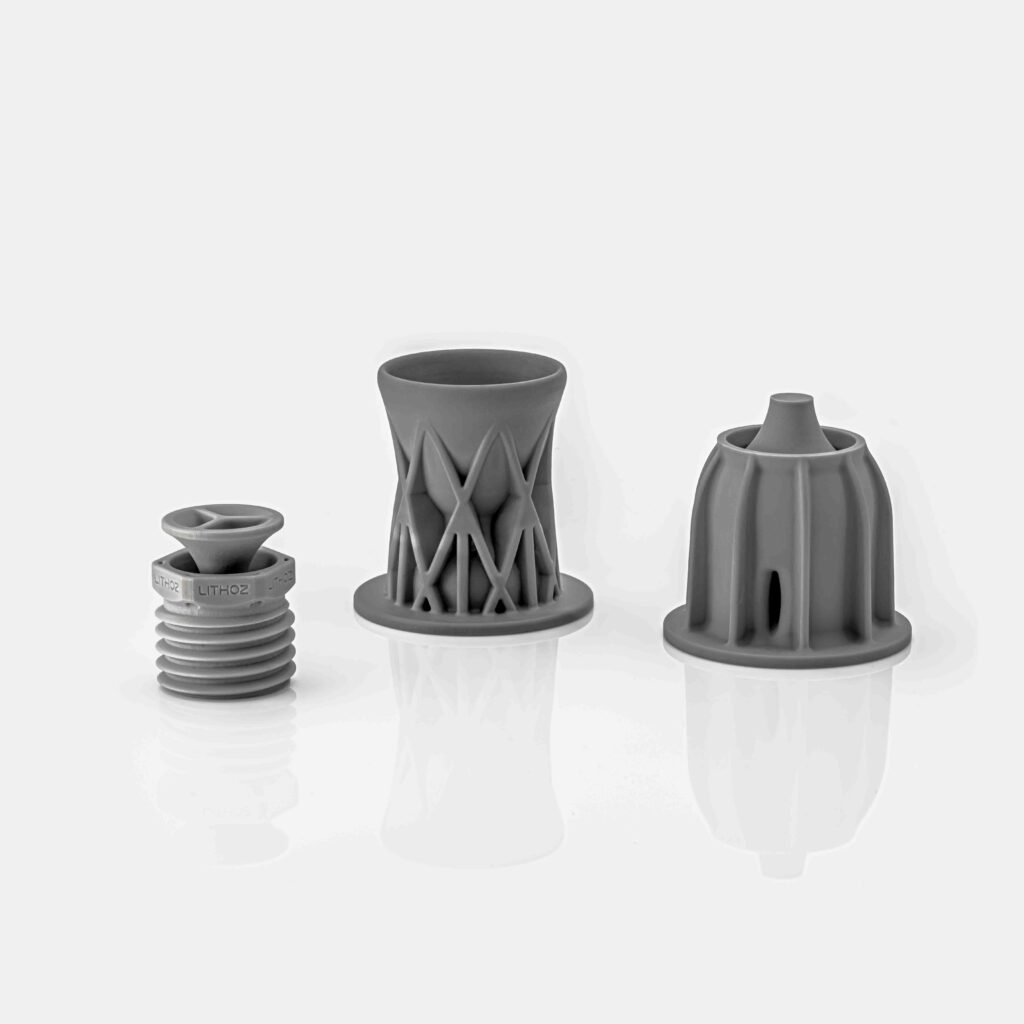Written by 3DNatives.
Higher, further, faster – these are not only the demands placed on modern society, but also science, industries, applications and technology. Whether in the automotive, aerospace or medical sectors, the general aim is to push boundaries, expand existing possibilities and increase efficiency. But to serve these fields, high-performance materials are needed that meet the requirements of these applications and performance is still primarily associated with metals. However, when it comes to harsh and demanding environments, metals quickly reach their natural limits, necessitating alternative materials. Thanks to their powerful and unique properties, ceramics are very suitable as an alternative. High-performance ceramics have outstanding properties for use in demanding conditions and in combination with additive manufacturing, unlock a wide range of possible applications in extreme environments – from the human body to industry and outer space. One such high-performance ceramic is silicon nitride, the applications of which we will examine in more detail to illustrate the potential of ceramic materials.
First, it is important to understand why ceramics are used for high-performance applications – namely, due to their excellent material properties. Ceramics are very hard, as well as having significant abrasion and heat resistance. They offer high mechanical and dimensional stability, even at very high temperatures. These characteristics make it a very efficient material that shows its advantages where other materials fail.
Moreover, innovative materials with a wide range of applications and high durability are in demand, especially in fields that are developing ever faster due to research. For this reason, ceramics are increasingly attracting the attention of engineers in these fields. However, a certain technique is also needed to process high-performance ceramics and fully utilize their remarkable properties. Additive manufacturing combines the innovative material properties of ceramics and a previously unachievable level design freedom so that the parts produced excel under extreme conditions.
That said, high-performance ceramics cannot be processed in just any 3D printing process. And Lithoz has emerged as a pioneer in ceramic 3D printing. The company’s LCM process offers a particularly promising solution for high-performance ceramics.
LCM technology can produce geometrically complex ceramic parts with full density and precision. These end parts are stronger than metal parts and have a longer service life. It is also worth mentioning that production can be scaled up using LCM technology and Lithoz has successfully mastered this level of mass production.
Read the full article in several languages on 3DNatives here.

